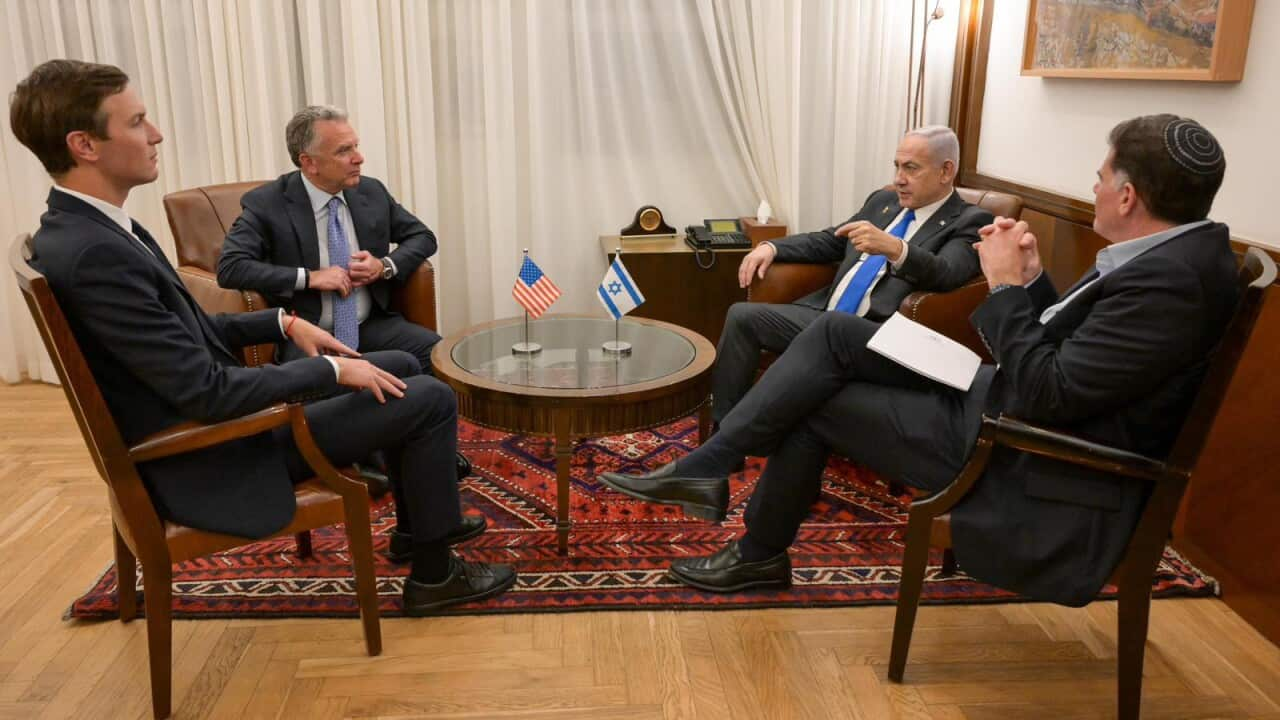Israel's government has ratified a ceasefire with the Palestinian militant group Hamas, clearing the way to suspend hostilities in Gaza within 24 hours and free Israeli hostages held in Gaza within 72 hours after that.
The Israeli cabinet agreed to the deal early Friday morning, roughly 24 hours after mediators announced an agreement to free Israeli hostages in exchange for Palestinian prisoners, in the first phase of United States President Donald Trump's initiative to end the two-year war in Gaza.
"The government has now approved the plan for the release of all hostages — the living and the fallen," Israeli Prime Minister Netanyahu's X account said.
Hamas' exiled Gaza chief Khalil Al-Hayya has said he had received guarantees from the US and other mediators that the war was over.
Meanwhile, Trump said he planned to leave for the Middle East later this week, hoping to travel to Israel, where he has been invited to address parliament, and maybe to Egypt.
"The hostages will be coming back Monday or Tuesday. I'll probably be there, I hope to be there," Trump told reporters in the Oval Office, referring to hostages taken by Hamas during its October 2023 attack on Israel.
Egyptian President Abdel Fattah el-Sisi said earlier he had invited his US counterpart to take part in a "celebration to be held in Egypt" for the agreement on the first phase of a ceasefire.
Despite celebrations in Israel and Gaza and a flood of messages from world leaders hailing the deal, numerous issues remain unsettled, including the plan's call for Hamas to disarm and a proposed transitional authority for Gaza led by Trump himself.
Senior Hamas official Osama Hamdan said the Palestinian Islamist movement rejected the latter.
"No Palestinian would accept this. All the factions, including the Palestinian Authority, reject this," Hamdan told Qatar-based broadcaster Al Araby.
Trump said the issue of Hamas surrendering its weapons would be addressed in the second phase of the peace plan.
"There will be disarming," he told reporters, adding there would also be "pullbacks" by Israeli forces.
Trump, who in February proposed that the US take over Gaza, also rejected speculation that Palestinians could be forced out of the devastated enclave.
"Nobody's going to be forced to leave. No, it's just the opposite. This is a great plan," Trump said.
Netanyahu, meanwhile, is facing pushback from his far-right allies.
Israel's far-right national security minister Itamar Ben-Gvir said earlier he would vote against the deal, calling the plan to release thousands of Palestinian prisoners and those held in administrative detention in exchange for the 47 hostages remaining in Gaza "an unbearable heavy price".
An Israeli government spokesperson said the ceasefire would go into force within 24 hours of government approval of the deal. After that 24-hour period, the hostages held in Gaza would be freed within 72 hours.
Twenty Israeli hostages are still believed to be alive in Gaza, while 26 are presumed dead, and the fate of two is unknown. Hamas has indicated that recovering the bodies of the dead may take longer than releasing those who are alive.
Under the deal, fighting will cease, Israel will partially withdraw from Gaza and Hamas will free all remaining hostages in exchange for hundreds of prisoners held by Israel.
Fleets of trucks carrying food and medical aid would be allowed to surge into Gaza to relieve civilians, hundreds of thousands of whom have been sheltering in tents after Israeli forces destroyed their homes and razed entire cities to dust.
US to deploy troops but stay out of Gaza, officials say
The United States will deploy 200 troops as part of a joint task force for Gaza stability, with no Americans on the ground in the Palestinian enclave, two senior US officials said on Thursday.
The task force will facilitate the flow of assistance into Gaza, including security assistance and humanitarian aid, said the officials, who spoke to reporters on the condition of anonymity.
The officials said the 200 US troops would be the core of a task force that would include representatives from Egypt's military, Qatar, Türkiye and probably the United Arab Emirates.
While the US troops' exact location had yet to be decided, the officials said they would develop a joint control centre and integrate other security forces that would work in Gaza to coordinate with Israeli forces to avoid clashes.
"No US troops are intended to go into Gaza," said one of the officials.
For the latest from SBS News, download our app and subscribe to our newsletter.

